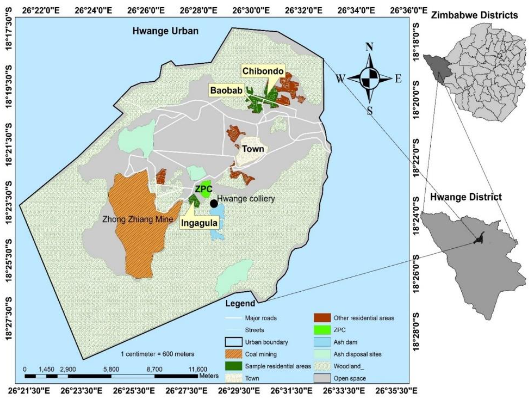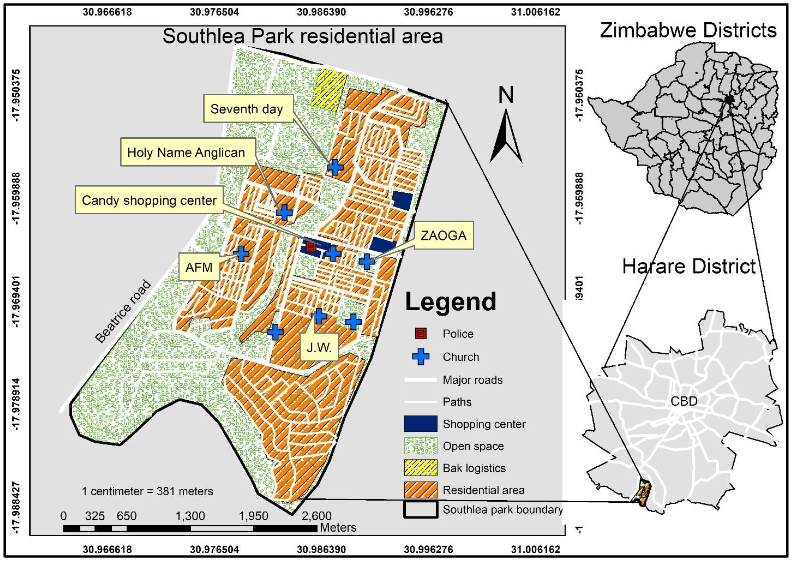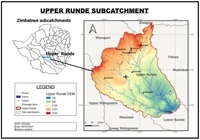Exposing the hidden costs of ‘free’: Personal data commodification in the digital economy via X.0 Theory, Fuzzy Delphi, thematic analysis, and problem-solving frameworks
Abstract
In this article, various techniques such as Fuzzy Delphi, thematic analysis method, and Creative Problem Solving (TRIZ Algorithm) are investigated to model the antecedents and consequences of personal data commodification in the digital economy in the post-truth world, through the X.0 wave/era theory. The article’s findings highlight and reveal the hidden costs of ‘free’ products and services that are offered in exchange for personal data. To address these issues, there is a growing need for increased regulation and transparency in the digital economy, as well as greater awareness among consumers about the value of their personal data and their rights to privacy. The article draws upon the metaphor of ‘free cheese and mousetrap’, which emphasizes how individuals can be lured into providing their personal data, only to be exploited or used for someone else’s benefit. Additionally, this article addresses three topics that have become increasingly relevant in recent years. Firstly, it is crucial to, beware of products that appear to be free—they’re not intended for your benefit, but rather to exploit you as a commodity. Secondly, the article examines the ‘velvet revolution’ that has taken place, which has facilitated the commodification of personal data in the digital economy. Thirdly, the article explores the intersection of hybrid, cognitive, and disinformation warfare with information disorder, which is used to control social and cultural capital.
References
[1]Statista. Global market for data monetization forecast to exceed USD 500 billion by 2026. Available online: https://www.statista.com. 08.01.2025 (accessed on 15 August 2024).
[2]Toffler A. The third wave. Bantam Books; 1980.
[3]Zuboff S. The age of surveillance capitalism: The fight for a human future at the new frontier of power. PublicAffairs; 2019.
[4]Warren S, Brandeis L. The right to privacy. Harvard Law Review. 1890; 4(5): 193–220.
[5]Varian HR. Beyond big data. Business Economics. 2014; 49(1): 27–31.
[6]Zuboff, S. The Age of Surveillance Capitalism: The Fight for a Human Future at the New Frontier of Power. PublicAffairs. 2019. doi: 10.1080/23753234.2022.2086891
[7]Romanosky S, Acquisti A. Privacy Costs and Personal Data Protection: Economic and Legal Perspectives. 2009.
[8]Elkington J. Cannibals with forks: The triple bottom line of 21st-century business. Capstone; 1997.
[9]Mohammadian HD. Mapping the Future Sustainable, through the Theory of Comprehensive Everything or the 5th Wave/Tomorrow Age Theory, with a focus on Hybrid SMEs/SME 5.0 Educationally. In: Proceedings of the 2022 IEEE Global Engineering Education Conference (EDUCON); 28–31 March 2022; Tunis, Tunisia. pp. 1747–1761.
[10]Schwab K. The Fourth Industrial Revolution: What it means, how to respond. Available online: https://www.weforum.org/agenda/2016/01/the-fourth-industrial-revolution-what-it-means-and-how-to-respond/ (accessed on 10 December 2024).
[11]Belanger F, Crossler RE. Privacy in the Digital Age: A Review of Information Privacy Research in Information Systems. MIS Quarterly. 2011; 35(4): 1017–1041.
[12]Harris RD. Cybersecurity in the Digital Age. In: Selby M (editors). Cybersecurity: Human Rights in the Age of Cyberveillance. Routledge; 2021. pp. 15–32.
[13]Turow J. The aisles have eyes: How retailers track your shopping, strip your privacy, and define your power. Yale University Press; 2017.
[14]Tene O, Polonetsky J. Big data for all: Privacy and user control in the age of analytics. Northwestern Journal of Technology and Intellectual Property. 2013; 11(5): 239–274.
[15]Lanier J. Ten arguments for deleting your social media accounts right now. Henry Holt and Company; 2018.
[16]Andrejevic M. The big data divide. International Journal of Communication. 2014; 8: 1673–1689.
[17]Mayer-Schönberger V, Cukier K. Big data: A revolution that will transform how we live, work, and think. Houghton Mifflin Harcourt; 2013.
[18]Floridi L. The fourth revolution: How the infosphere is reshaping human reality. Oxford University Press; 2014.
[19]Brynjolfsson E, McAfee A. The Second Machine Age: Work, Progress, and Prosperity in a Time of Brilliant Technologies. WW Norton & Company; 2014.
[20]Stucke ME. Competition policy for the digital era. Oxford University Press 2019.
[21]Acquisti A. The economics of privacy. Journal of Economic Literature. 2017; 55(1): 442–492.
[22]European Commission. Regulation (EU) 2016/679: General Data Protection Regulation (GDPR). European Commission; 2018.
[23]Choi JP, Thampapillai DJ. The economics of personal data and privacy: An overview of concepts and issues. International Journal of Industrial Organization. 2019; 63: 1–8.
[24]Fuchs C. Unmasking the True Price of ‘Free’: Exploring the Commodification of Personal Data in the Digital Economy and the Implications for Innovation, Markets, and Privacy in a Post-Truth World via X.0 Wave/Age Theory. Social Media + Society. 2020; 6(1): 2056305120905078.
[25]Wu T. The attention merchants: The epic scramble to get inside our heads. Knopf; 2016.
[26]O’Neill C. Weapons of math destruction: How big data increases inequality and threatens democracy. Crown; 2016.
[27]Obar JA, Oeldorf-Hirsch A, Williams ML. The digital surveillance ecosystem: Toward a critical framework for data-driven privacy research. Information, Communication & Society. 2019; 22(1): 118–135.
[28]Kubát M. Velvet Revolution 30 years on: A unique moment in history. Czech Journal of International Relations. 2019; 54(2): 7–28.
[29]Zuboff S. Big other: Surveillance capitalism and the prospects of an information civilization. Journal of Information Technology. 2015; 30(1): 75–89.
[30]Howard PN, Kollanyi B. Bots, #StrongerIn, and #Brexit: Computational propaganda during the UK-EU referendum. Available online: https://papers.ssrn.com/sol3/papers.cfm?abstract_id=2798311 (accessed on 10 December 2024).
[31]Cadwalladr C, Graham-Harrison E. Revealed: 50 million Facebook profiles harvested for Cambridge Analytica in major data breach. Available online: https://www.theguardian.com/news/2018/mar/17/cambridge-analytica-facebook-influence-us-election (accessed on 10 December 2024).
[32]Obermeyer Z, Powers B, Vogeli C, et al. Dissecting racial bias in an algorithm used to manage the health of populations. Science. 2019; 366(6464): 447–453.
[33]Wu T. The Curse of Bigness: Antitrust in the New Gilded Age. Columbia Global Reports; 2018.
[34]Bayramov SE, Delgado CEB. The Emergence of Hybrid Warfare. Joint Force Quarterly. 2016; 80: 7–13.
[35]Farkas J, Schmitt M. Hybrid warfare: A new paradigm of warfare? The RUSI Journal. 2013; 158(5): 60–67.
[36]Giordano JP. Hybrid warfare and cyber security: Strategic concepts and cutting-edge examples. CRC Press; 2019.
[37]Rattray G. The limits of hybrid warfare: A response to Frank Hoffman. Joint Force Quarterly. 2015; 77: 144–150.
[38]Tandoc Jr. EC, Lim ZW, Ling R. Defining “Fake News”. Digital Journalism. 2018; 6(2): 137–153.
[39]Shu K, Sliva A, Wang S, et al. Fake News Detection on Social Media: A Data Mining Perspective. ACM SIGKDD Explorations Newsletter. 2017; 19(1): 22–36.
[40]Stieglitz S, Dang-Xuan L. Emotions and Information Diffusion in Social Media—Sentiment of Microblogs and Sharing Behavior. Journal of Management Information Systems. 2013; 29(4): 217–248.
[41]Tsfati Y. The Relationship between Exposure to News, Sensationalism, and Political Sophistication. Journalism & Mass Communication Quarterly. 2017; 94(3): 748–766.
[42]Wardle C, Derakhshan H. Information Disorder: Toward an Interdisciplinary Framework for Research and Policy Making. Council of Europe report. 2017; 15.
[43]NATO. NATO Terms and Definitions. NATO; 2016.
[44]NATO. Allied Joint Doctrine for Information Operations. NATO; 2016.
[45]United States Department of Defense. Information Operations. United States Department of Defense; 2016.
[46]Mackiewicz D. Cognitive Warfare. Conference: INSS-Summer Institute 2018At: Tel Aviv, Israel, Cognitive Warfare: A 21st Century Primer. U.S. Army War College Press; 2021.
[47]Erbschloe M. Information Warfare: The Strategic Use of Information for Modern Warfare. Jones & Bartlett Learning; 2017.
[48]Huntington SP. The Clash of Civilizations? Foreign Affairs. 1993; 72(3): 22–49.
[49]Huntington SP. The Clash of Civilizations and the Remaking of World Order. Simon & Schuster; 1996.
[50]Dziak JW. Cheating and Deception: Strategies for Managing Cognitive Warfare. Strategic Studies Quarterly. 2016; 10(1): 85–105.
[51]Mohammadian HD, Langari ZG, Wittberg V. Cyber Government for Sustainable Governance: Examining Solutions to Tomorrow’s Crises and Implications through the 5th wave theory, Edu 5.0 concept, and 9PSG model. In: Proceedings of the 2022 IEEE Global Engineering Education Conference (EDUCON); 28–31 March 2022; Tunis, Tunisia. pp. 1737–1746.
[52]Hung TC, Hung TW. How China’s Cognitive Warfare Works: A Frontline Perspective of Taiwan’s Anti-Disinformation Wars. Journal of Global Security Studies. 2022; 7(4). doi: 10.1093/jogss/ogac016
[53]Available online: https://www.youtube.com/watch?v=EGeiz23CmPU (accessed on 11 December 2024).
[54]Mohammadian HD, Langari ZG, Castro M, et al. Smart Governance for Educational Sustainability: Hybrid SMEs & the 5th wave theory Towards Mapping the Future Education in Post-Covid Era. In: Proceedings of the 2022 IEEE Global Engineering Education Conference (EDUCON); 28–31 March 2022; Tunis, Tunisia. pp. 1916–1926.
[55]Mohammadian HD, Langari ZG, Kamalian AR, et al. Promoting sustainable global innovative smart governance through the 5th wave theory, via Fuzzy AHP for future SMEs (SME 5.0/hybrid SMEs). AIMS Geosciences.2023; 9(1): 123–152.
[56]Mattiello H. Sailing the X.0 Wave Theory: Navigating the Future of Civilization. Intelligent and Sustainable Manufacturing. 2024; 1(2): 10021. doi: 10.70322/ism.2024.10021
[57]Mohammadian HD, Langari ZG. Competitive Advantage, Strategy and Innovation in Africa: Issues and Applications. Routledge; 2023. pp. 53.
[58]Mattiello H. Vulnerability Assessment of European Personal Data Commodification in the Digital Economy. 2021.
[59]Mohammadian HD, Langari ZG. A Study of Innovations and Creativities as a Competitive Advantages Strategy in the Context of i-Sustainability Plus Theory via an African Cultural Approach. In: Competitive Advantage, Strategy and Innovation in Africa: Issues and Applications. Routledge; 2023. pp. 30.
[60]Mohammadian HD. Mapping the Future SMEs’ HR Competencies via IoE Technologies and 7PS Model Through the Fifth Wave Theory. In: Management and Information Technology in the Digital Era—Challenges and Perspectives. Emerald Publishing Limited; 2022. pp. 141–171.
[61]Kaplan JM, Haenlein M. Siri, Siri, in my hand: Who’s the fairest in the land? On the interpretations, illustrations, and implications of artificial intelligence. Business Horizons. 2019; 62(1): 15–25.
[62]Schwab K. The Fourth Industrial Revolution. Crown Currency; 2016.
[63]Dietz JLG. The X.0 Age: The Future of Digital Disruption. Routledge; 2017.
[64]Crosby M, Pattanayak P, Verma S, et al. Blockchain technology: Beyond bitcoin. Applied Innovation. 2016; 2(6–10): 71–77.
[65]Jordan MI, Mitchell TM. Machine learning: Trends, perspectives, and prospects. Science. 2015; 349(6245): 255–260.
[66]Al-Fuqaha A, Guizani M, Mohammadi M, et al. Internet of things: A survey on enabling technologies, protocols, and applications. IEEE Communications Surveys & Tutorials. 2015; 17(4): 2347–2376.
[67]Billinghurst M, Clark A, Lee G. A survey of augmented reality. Foundations and Trends in Human–Computer Interaction. 2015; 8(2–3): 73–272.
[68]Mittelstadt BD, Floridi L. The ethics of big data: Current and foreseeable issues in biomedical contexts. Science and Engineering Ethics. 2016; 22(2): 303–341.
[69]Kroll JA, Looi MK, Wingreen NS. Quantitative bounds on the computational power of spiking neural networks and of neuromorphic computing. Frontiers in computational neuroscience. 2018; 12: 35.
[70]Calo R. Robotics and the new cyberlaw. Harvard Journal of Law & Technology. 2013; 27(2): 595–635.
[71]Crouch RA, Elliott C. Biotechnology, bioethics and the value of life. Journal of Medical Ethics. 2015; 41(4): 340–344.
[72]Jasanoff S, Kim SH. Containing the atom: Sociotechnical imaginaries and nuclear power in the United States and South Korea. Minerva. 2015; 53(3): 275–297.
[73]Aguilar-Lasserre AA, Torres-Sánchez VE, Fernández-Lambert G, et al. Functional optimization of a Persian lime packing using TRIZ and multi-objective genetic algorithms. Computers & Industrial Engineering. 2020; 139: 105558.
[74]Chang PL, Hsu CW, Chang PC. Fuzzy Delphi method for evaluating hydrogen production technologies. 2011. doi: 10.1016/j.ijhydene.2011.05.045
[75]Doost Mohammadian H. Google’s Advertisement and Announcement for JOB. In: Proceeding of the Soziales Kulturkapital und kognitive Kriegsführung: Iran Kultur online live conference, April 6, 2021. Berlin, Germany.
[76]Isaac M, Frenkel S. Uber reveals data breach and cover-up, leading to two firings. The New York Times. 2017.
[77]Wauters R. Google’s GDPR compliance efforts emerge: $57M spent on compliance, 90K staff trained, 1K experts hired. TechCrunch; 2018.
[78]Angwin J, Mattu S. Amazon’s facial recognition matched 28 members of Congress to criminal mugshots. Here’s why experts are worried. ProPublica; 2018.
[79]Kang C. Apple’s latest privacy move: It’s collecting more of your data. The New York Times, 12 June 2017.
[80]FTC. Equifax data breach settlement. Available online: https://www.ftc.gov/enforcement/cases-proceedings/refunds/equifax-data-breach-settlement (accessed on 11 December 2024).
[81]Timberg C, Dwoskin E. Google tracks your movements, like it or not. Associated Press; 2018.
[82]Copeland R. Google’s secret “Project Nightingale” gathers personal health data on millions of Americans. The Wall Street Journal. 2019.
[83]Vincent J. Google will no longer read your emails to tailor ads. The Verge; 2017.
[84]Greenwald G. How the NSA Plans to Infect ‘Millions’ of Computers with Malware. Available online: https://theintercept.com/2014/03/12/nsa-plans-infect-millions-computers-malware/ (accessed on 11 December 2024).
[85]Kofman M, Ranta R. Social media in hybrid warfare: Ukraine as an information battlefield. European Parliamentary Research Service. 2018.
[86]Clarke R. Hybrid war and its implications for resilience. Journal of Contingencies and Crisis Management. 2017; 25(4): 231–236.
[87]Mameli M. AI, cognitive warfare and cyber security: A conceptual and ethical analysis. Ethics and Information Technology. 2019; 21(2): 101–114.
[88]Tufekci Z. Twitter and Tear Gas: The Power and Fragility of Networked Protest. Yale University Press; 2018.
[89]Lohr S. The cost of a hot economy in California: A severe shortage of workers. The New York Times. 2019.
[90]Kshetri N, Voas J. Blockchain-enabled smart contracts: Architecture, applications, and future directions. IEEE Computer Society; 2018.
[91]Harding L. The Cambridge Analytica scandal changed the world—but it didn’t change Facebook. Available online: https://www.theguardian.com/technology/2019/mar/17/the-cambridge-analytica-scandal-changed-the-world-but-it-didnt-change-facebook (accessed on 11 December 2024).
[92]Pasquale F. The black box society: The secret algorithms that control money and information. Harvard University Press; 2015.
[93]Schneier B. Data and Goliath: The hidden battles to collect your data and control your world. WW Norton & Company; 2015.
[94]Boyd D, Crawford K. Critical questions for big data: Provocations for a cultural, technological, and scholarly phenomenon. Information, Communication & Society. 2012; 15(5): 662–679.
[95]Ohm P. Broken promises of privacy: Responding to the surprising failure of anonymization. UCLA Law Review. 2010; 57: 1701–1777.
[96]Abdelli MEA, Sghaier A, Akbaba A, et al. Smart Cities for Sustainability: Approaches and Solutions. Emerald Publishing Limited; 2023.
[97]Mohammadian HD, Alijani O, Moghadam MR, et al. Navigating the Future by Fuzzy-AHP method: Enhancing Global Tech-Sustainable Governance, Digital Resilience, & Cybersecurity via the SME 5.0, 7PS Framework & The X.0 Wave/Age Theory in the Digital Age. AIMS Geosciences. 2024; 10(2): 371–398. doi: 10.3934/geosci.2024020
[98]Mattiello H, Domann C. Overcoming SME Legal and Regulatory Challenges and Fostering Sustainable Collaboration and 7PS Engineering in the Digital Age through Integrating the X.0 Wave Theory & SME 5.0 Concept. Intelligent and Sustainable Manufacturing. 2024; 1(2): 10011. doi: 10.35534/ism.2024.10011
[99]Mohammadian H, Wittberg V. Edu-Tech Mirrors Culture as an Infrastructure & Solution for Future-Oriented Engineering Edu-Tech Challenges in the Digital Transformation and Industry 5.0/Society 6.0 Era via X.0 Wave/Age Theory. In: Proceedings of the 2024 IEEE Conference (EDUCON); 08–11 May 2024; Kos Island, Greece.
[100]Available online: https://www.youtube.com/watch?v=tiqJoC2RTpc, Prof. Hamid Mattiello’s own work in 2010 (accessed on 22.01.2025 7:46)
Copyright (c) 2024 Hamid Mattiello

This work is licensed under a Creative Commons Attribution 4.0 International License.
Authors contributing to this journal agree to publish their articles under the Creative Commons Attribution 4.0 International License, allowing third parties to share their work (copy, distribute, transmit) and to adapt it for any purpose, even commercially, under the condition that the authors are given credit. With this license, authors hold the copyright.










